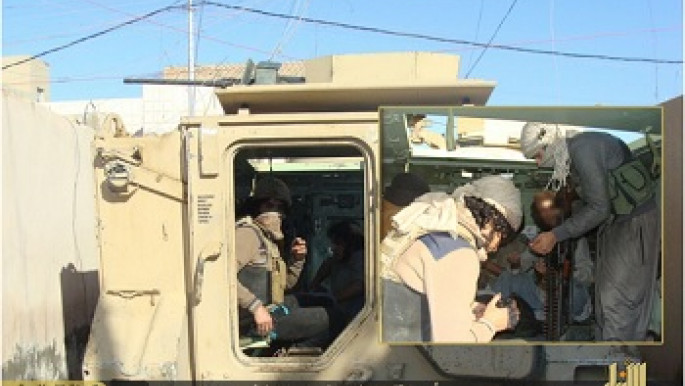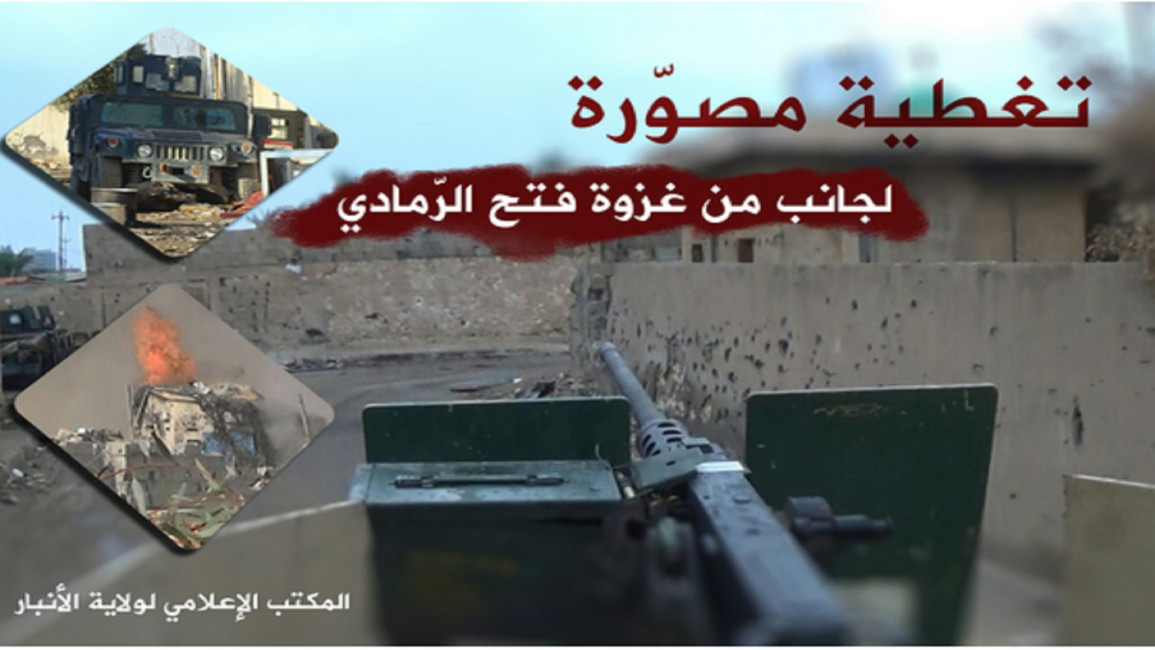Ramadi battle only part of struggle for Iraq's heart
Militants from the Islamic State group (IS, formerly known as ISIS) launched an audacious raid on the government headquarters in Ramadi, eastern Iraq, on Thursday.
The attack was repelled for now, the army and their allies say, but the battle for control of the town and the rest of Anbar province continues on numerous fronts.
Many Ramadi residents have fled, but thousands are trapped by the fighting and the humanitarian situation is deteriorating rapidly.
"In Ramadi, the situation has been very bad these past few days," said Red Cross spokesman Saleh Dabbakeh. "People have not been able to move in the city, many have fled, shops are running out of food and the hospitals are very low on medicine and resources."
Ramadi is 60 miles west of Baghdad and is of significant strategic importance.
"We were able to stop the militants from advancing in the government complex," Colonel Haytham al-Daraji told AFP.
Four members of the security forces were killed and 21 wounded, according to the officer and a doctor.
Most of the Anbar province and much of Ramadi town are already under the control of IS. Campaigns on governorate buildings and military headquarters are largely symbolic and feed the militia's well-oiled media machine.
The Ramadi raid was heavily publicised on the IS Twitter accounts. Images show fighters using captured M113 armoured personnel carriers and rocket-propelled grenades.
Several photographs display dead Iraqi military personnel and tribal militiamen while others show children apparently cheering in the streets while carrying the IS flag.
 |
|
| A photo from an IS Twitter account. The caption reads: Lions of the incursion on the road to hunt their prey |
Bleeding them dry
"It seems they are trying to bleed dry the government forces in Anbar," said Maki Naxal, a researcher and humanitarian worker from Fallujah now living in Jordan.
"It would be almost impossible for them to take all of the province, but they can severely stretch and weaken the military and win media coups along the way."
A number of IS command centres and supply lines have come under sustained attack, especially from US-led airstrikes.
The army recently retook Jurf al-Sakhr, south of Baghdad and also made important gains in the Baiji, Jalawla and Saadiyah areas, north of the capital.
The IS group is particularly keen to reverse their recent retreats in Baiji, and the more resources and men the army has to deploy to places such as Ramadi the easier that task will be.
Colonel Haytham al-Daraji confirmed that reinforcements had been deployed to Ramadi after the attack on the government headquarters.
Building alliances
The battle for control of the pivotal Anbar province is highly dependent on the allegiance of the region's Sunni tribes.
Much of the Sunni population complain of ongoing oppression from the security services on the one hand and IS vengeance if they don't swear allegiance on the other.
Several tribes have fallen prey to massacres and in the most recent campaign, IS are reported to have murdered 25 members of the Albu Fahd tribe in eastern Ramadi.
"The tribes are the victims here," Naxal told al-Araby al-Jadeed. "They believed in the US and the Iraqi government but they are not getting the support they need and they are losing many of their sons."
Baghdad has been reticent to allow significant arms flows to Sunni tribes - even if they are fighting against IS.
Internal politics between local militias are also causing strife in the region and increasing the bloodshed.
"People within the city are split over this. There is a lot of score-settling going on between the tribes themselves," explained the Red Cross' Dabbakeh in Baghdad.
As part of its efforts to shed the sectarian legacy of the former Maliki administration, the government is reportedly set to annul the death sentence passed earlier in the week against local Sunni politician, Ahmad al Alwani.
Jassim Mohammad al-Halbousi, a member of the Anbar provincial council, said that he had received assurances that the death sentence would not be carried out.
"The delegates following up on Ahmad al-Alwani's case, led by Vice-President Osama Nujaifi, received assurances and pledges from President Fouad Masoum and Prime Minister Haidar Abadi to reconsider Alwani's death sentence," he told al-Araby's Arabic edition.
"There is an urgent need to stop the execution, and Abadi will understand this the most. The sentence deals a severe blow to his national reconciliation efforts."
Several influential tribes withdrew from the fight against IS when they heard of the verdict. Many politicians in Baghdad also complained the ruling severely undermined the government's support in Ramadi and the wider province.



